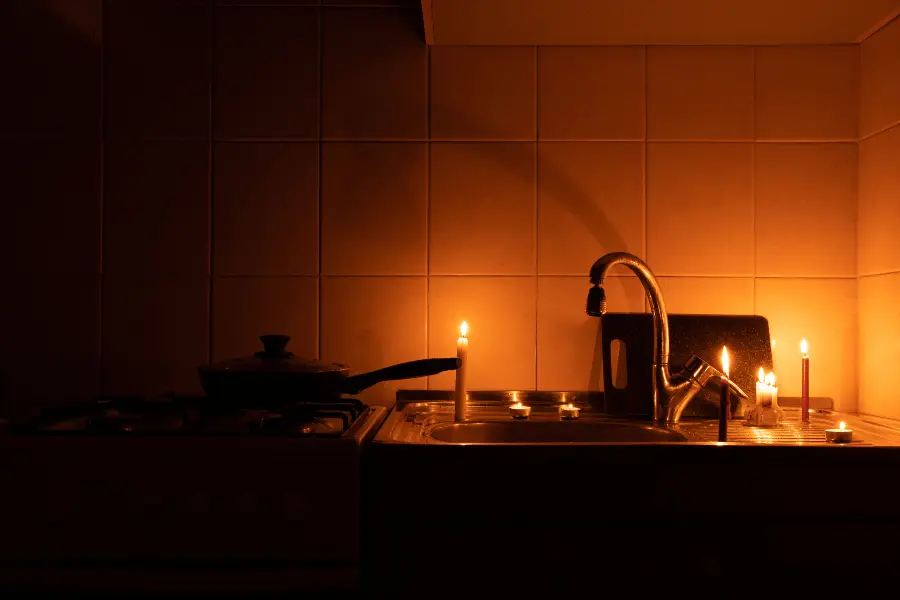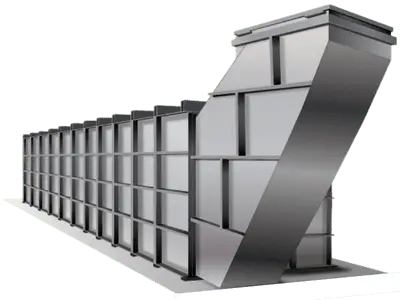
The power goes out. The heat goes out. The water goes out. Suddenly, you’re completely out of your comfort zone! Without the proper equipment, this could be an uncomfortable circumstance for a day, a week, or even longer. Whether the outage was caused by a storm, a system failure, or a nuclear attack, it’s essential to have a way to live off the grid if you have to. Read on to learn how to prepare if you’re forced to live without electricity for a while.
Determine your priorities
First, determine what living off-grid means for you and your family. Are you prepared to camp in the event of a power outage? Can you do without a shower? Knowing what your primary needs will be without electricity will help you better anticipate an emergency situation.
Make a list of essential items to survive without electricity
Make a list of the items you need to keep going if you have to survive without power. Do you need a refrigerator or could you get by with a cooler? And for how long? Do you need your water heater or could you heat water on a gas grill? Make a list of the items you need to keep going. a list of all articles which you will need for the first day, the third day, etc. Not showering will be bearable for a few days, but after a while, people will want to feel clean!
Here is a list of key points to plan for surviving without electricity:
- A lighting system (lamps, batteries, etc.)
- An additional power supply (generator, photovoltaic panel or wind turbine)
- Necessary food and water supplies
- Heating and an auxiliary cooking system
- A means of communication with the outside world (ideally a radio)
If you need to move to a safe place or to a bunker kit, remember to prepare efficient means of transport that are large enough to carry your survival equipment.
Take inventory of the items and foods you have on hand
Take inventory of what you currently have. What items do you have that you could use during a power outage? Do you have solar cell phone chargers? Or maybe a generator? Do you have a grill or a way to cook foods that don't require power?
Consider your pantry. Do you have any foods you can make that don't require a lot of prep? Consider eating easy meals: canned and mac and cheese, canned soups, cans of beans, rice, dried fruit. These are easy to store and keep on hand. If you must keep them separate from the family pantry, place them in a large plastic bin with a tight-fitting lid.
Discover your own home
Understand your home's systems. Do you know where the gas comes in? Can you stop it? Do you know where the main water valve is? In the event of a disaster or other problem, it may be essential to shut down these systems. After taking stock of the items you have, think about what you'll need to live off-grid for about two weeks at a time.
Ensure a sufficient supply of drinking water!

Water! This is the most critical problem that most people face when they are forced to survive without electricity. Make some water storage your top priority. Whether you choose to buy bottles or fill tanks, do it and be prepared. If you have a warning of an impending storm, fill the bathtub and all the pots you can. If you find yourself in a situation without electricity for an extended period of time, every drop of water can become vital. With a gas heating system, you will also be able to heat water to make it drinkable.
Find a reliable heat source
Depending on your climate, you will need to consider your heating options. Even if you live in a southern climate, don't underestimate how cold it can get in the summer months. A kerosene heater will keep 100m2 warm on one tank (about two gallons) for 12 hours. A small propane heater is a good supplemental heater and an effective and inexpensive way to warm a small area. Once you find your alternative heating system, don't just leave it in a box! Take it out and use it a few times so you know exactly what to do in an emergency.
Learn alternative cooking methods
Get a gas grill or a kerosene grill. This means you can boil water and cook almost anything you need on the burner. If you are a fan of the camping life, you can build a fire outside and cook that way. A wood stove is an efficient heating device and you can also cook with it. It doesn't have to be a cooking pan, it just has to have a flat top. Pull out Grandma's cast iron pans and play "Little House on the Prairie" for a few days. You can also look into small camping stoves that will provide you with an efficient way to cook in a small space. Make sure you cook in a well-ventilated area without being too exposed!
Let there be light
It's going to be dark and your iPhone flashlight won't last long. So make sure you have a supply of small LED flashlights and a headlamp. Headlamps are ideal for cooking in the dark, repairing things or playing cards at night. Long-burning candles are helpful, as are solar-powered outdoor lights. On some websites you can even find Christmas lights powered by solar chargers, and they are fun and useful for lighting up dark corners of the house. In any case, don't skimp on batteries!
Surviving without electricity – In conclusion!
Remember, people have lived without electricity for thousands of years: so it's not that difficult, and you can do it too. Find what works best for you and practice several times (include your toilet strategy!), so that when a real emergency hits, you'll be comfortable and able to cope with the different events. A bunker kit Well equipped is the best survival solution!



